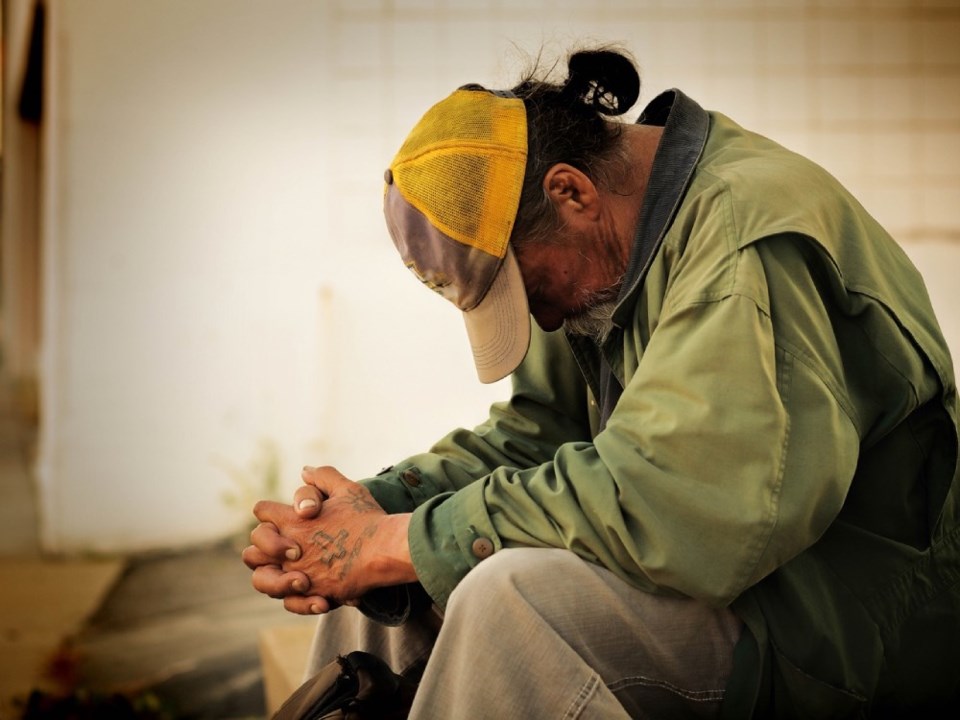Life can be “nasty, brutish and short” when basic survival needs such as food, water and shelter are threatened. Those needs are now considered basic human rights, as of the 1948 drafting of the Universal Declaration of Human Rights. How this translates into reality is an unfinished puzzle. In Canada alone, tens of thousands remain on the street, with record numbers of people dying of toxic drugs.
It’s an amazing testament to volunteers of all kinds, including a whole array of faith-based groups, who have for years been working at shelters, food banks, clothes drives and fundraisers. But we all know that this is not sustainable. Systemic changes are needed.
Current policies centre around “housing first” and the decriminalization of street drugs. This makes sense, prioritizing the most urgent needs and injustices. The inevitable follow-up question is how to fix the underlying problems. The issues of homelessness, mental health and addiction need integrated, cohesive responses – nothing less will do.
Is the problem polarization? We’ve all heard that you can’t help people until they’re ready, that people should have the right to live on the street, to take drugs, to live according to their own lights. On the other hand, there are mothers asking in frustration why it’s okay to allow people to live in squalor and deprivation when they’re not in their right minds to make these decisions.
We may disagree on involuntary treatment, but our real failing is the one everyone agrees on: the lack of affordable, accessible treatment. The necessary corollary to that is affordable housing, ideally a variety of dispersed public, cooperative and social housing. None of this is controversial. The only question is budget, and we know now that even this is a red herring, all costs considered.
We often look to for dealing with the issue of addiction, but Portugal didn’t stop with harm reduction. Over 20 years ago, that country not only decriminalized drugs but began to handle substance abuse through prevention, treatment and reintegration, all offered as part of the general healthcare system. With a population of just 11 million, it has 64 publicly-funded, mostly privately-operated therapeutic centres whose goal is rehabilitation and reintegration.
In 2016, this health-centred approach was . It not only honours every human being’s inherent worth, but the right and responsibility to be a contributing member of society.
The idealistic and pragmatic are not at odds here, and neither are basic values. Virtually all cultures and belief systems encourage people to contribute to the common good. In the Bahá’í Faith, for example, work done in the spirit of service is considered the highest form of worship, whether it’s making meals, teaching children, cleaning streets or running a large business. A related belief is that every human being has been created “to carry forward an ever-advancing civilization”.
Regardless of belief, most would agree that rehabilitation and reintegration are in the best interests of both the individual and society. A 2021 report out of Simon Fraser, , claimed that prioritizing rehabilitation and reintegration resulted in a 70% reduction in crimes and 50% of the medical emergencies of the present system. They calculated the total cost to be essentially the same. The report called this approach “recovery-oriented housing”.
Governments are struggling to rewrite social policies gutted by decades of an unbridled form of capitalism. It’s time for a compassionate system that emphasizes both traditional and humanitarian values. The twin goals of individual and social health are key.
Sheila Flood is the E.D. of the Victoria Multifaith Society and member of the Bahá’í community.
You can read more articles on our interfaith b;og, Spiritually Speaking, at



